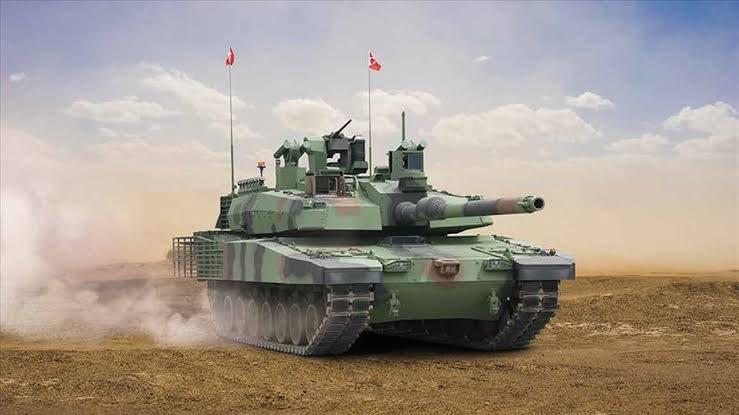The engine for Turkey’s main battle tank (MBT) Altay has arrived from South Korea. Turkish land vehicle manufacturer BMC, the company that is undertaking the Altay project, signed an agreement with two South Korean companies, Doosan Infracore Co. and S&T Dynamics Co., for the engine and transmission. Turkey initially kicked off the MBT project in 2007, but the procurement of an engine proved an obstacle for some time as some European companies refused to sell the powering unit. Altay is a Turkish modern main battle tank based on South Korean K2 Black Panther to be produced by BMC under design assistance and technology transfer by Hyundai Rotem.
Previously, the next-generation battle tank’s prototype was powered by a 1,500 horsepower diesel engine from Germany’s MTU Friedrichshafen GmbH. The German Rheinmetall had also established a joint venture with BMC aimed at joint production of armored vehicles, particularly the main battle tank, Altay. However, the production and supply of the tank engine came to a halt following Berlin’s decision to limit arms exports to Turkey, a longtime NATO ally. The German arms embargo came as a result of the flare-ups in Syria that have put weapons sales to Ankara under intense scrutiny by its Western allies.

While the Doosan Infracore product, a 1,500 hp rated 12-cylinder (V12) DV27K diesel engine, is used in the second batch of 106 K2 Black Panther Tanks produced for the Republic of Korea Army (ROKA), the S&T Dynamics product EST15K Automatic Transmission with hydraulic torque converter could not be used in the first batch of 100 and the second batch of 106 K2 Tanks due to technical problems. Instead, the German Renk product HSWL 495TM Automatic Transmission was used in the tanks. The domestically designed and produced EST15K Automatic Transmission is intended to be used with the DV27K Diesel Engine in the third batch of 54 K2 tanks expected to be ordered this year.
Germany has repeatedly announced that it limits arms sales to Turkey, which launched a counterterrorism operation in northern Syria that targeted both Daesh terrorists and the Kurdistan Workers’ Party (Partiya Karkeren Kurdistane, PKK) terrorist group and its Syrian branch, the YPG. Ankara has long criticized German authorities for not taking serious measures against the PKK, which is listed as a terrorist organization by Turkey, the United States and the European Union, and waged a terror campaign against Turkey for more than 40 years, causing the deaths of nearly 40,000 people, including women and children.
















